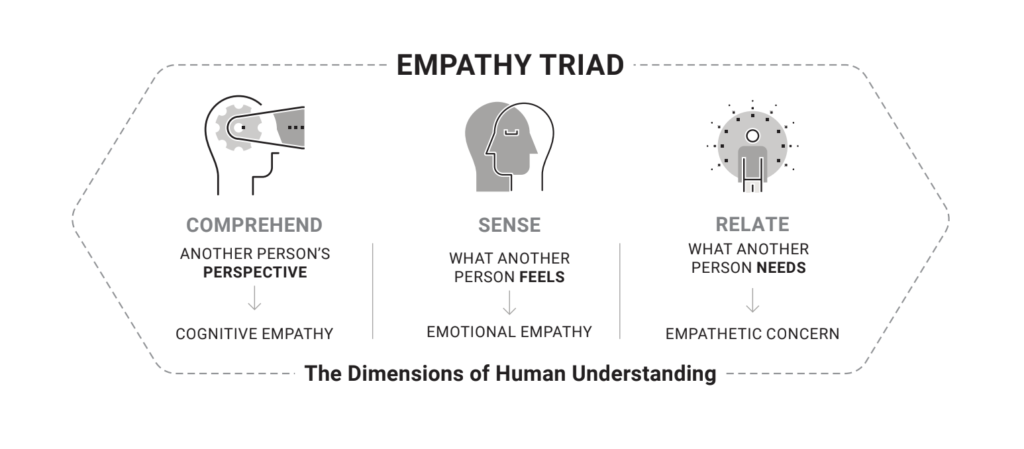The Roles of Empathy and Patient-Centricity in Healthcare Marketing Today
Empathy is a “buzzword” many companies and brands are using to signal selflessness and to show they care for others. It’s progress … empathy should be used in business—and must be used in both healthcare and healthcare marketing.
As quickly as it becomes an over-saturated term, we must be sure it doesn’t lose its true meaning. When this over-saturation happens, there’s a risk that the term itself begins to lose its meaning and impact.
Empathy isn’t easy and doesn’t happen overnight. It’s a lens that must be continually focused, each time producing a clearer understanding. “Empathy—like writing—isn’t a gift. It’s a discipline. It takes some intentional effort and diligence to develop enormous empathy so that you can apply it to your writing,” says Anne Handley, author of Everybody Writes.
We couldn’t agree more, as empathy gets to the heart of human-centered research and is the very reason we use ethnography for healthcare marketing strategy. Empathy is also a guiding principle or ‘lens’ through which we practice Design Thinking.
The Empathy Triad and Its Implications for Patient-Centric Healthcare Marketing
For healthcare, empathy is better defined within the context of the empathy triad, which frames and evaluates how you view empathy and your relative strengths or needs in each of three areas—cognitive empathy, emotional empathy, and empathic concern.

- Cognitive empathy is the ability to understand another person’s perspective by putting yourself in their shoes.
- Emotional empathy is the ability to feel what someone else is feeling.
- Empathetic concern is the ability to sense what another person needs from you.
The further we reach into and explore these various areas of empathy in the work we do, the more we can understand the individuals and communities that we are attempting to serve. Clearly, empathy takes lots of effort—feeling what your patients are feeling or need from you and your providers takes listening and sharing in the patient experience, both of which take practice and time.
Striving to Achieve “Highly Empathic Healthcare Marketing”
You may have heard the term Highly Empathic Person (HEP). In the healthcare industry, one must strive for Highly Empathic Marketing (HEM) to reach patient understanding—the crux to developing messaging that relates and corresponds to the needs, feelings, and experiences of the patients you serve.
Being a good listener is one way to practice empathy and in doing so gain a clearer understanding. Vulnerability is another trait of HEPs and empathic marketing. The strongest type of understanding is mutual, and sharing personal feelings or beliefs makes grasping patients’ own beliefs much easier. It also builds trust, showing residents of your community that you care and are committed to their personal health.
Healthcare consumers deserve much more than one-time transactions and digital patient engagement, and empathy is more than a mindset. It’s a process of doing, of getting closer to your stakeholders, adopting their perspective, and seeing the world through their eyes. As a healthcare marketer, you must develop relationships with your patients and engage with them regularly in your community and inside their four walls instead of yours. Engaging with patients in the broader context of their everyday lives will lead to a more contextualized and deeper understanding of their needs, so that we can better empathize and address their needs. If you are only engaging with patients inside the hospital, you can’t possibly be speaking their language or connecting with them via your marketing messaging and initiatives.
Highly Empathic Marketing, at its best, leads to mutual understanding and patient-centricity. As frustrating as it can be for healthcare marketing strategies to miss, its more infuriating to be lost in the healthcare system as a patient or caregiver. Not living up to patient expectations can make the difference in a health outcome.
Getting lost in the system can be avoided by engaging, educating, and empowering patients and those who care for them through an empathic lens. It takes practice and time, but it is an absolutely critical discipline to include in healthcare marketing and produces better marketing and health outcomes for you and your community.
